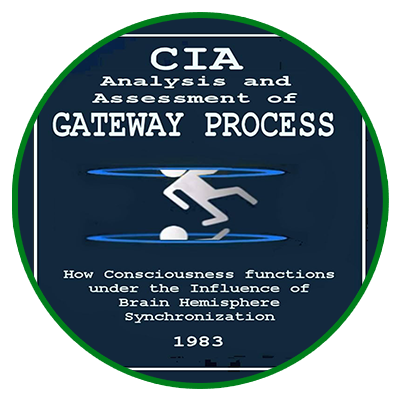
Protecting Family Rights
Organizing a funeral is an emotionally challenging process, requiring trust in cemetery management. Families expect their loved ones to be buried respectfully and according to religious and cultural traditions. However, rights violations at the Russian Orthodox Convent Novo-Diveevo cemetery in Nanuet have led many families into bureaucratic hurdles, financial misconduct, and unfair treatment. These issues transform the grieving process into an ongoing struggle for justice.
This information aims to warn those considering Novo-Diveevo cemetery in Nanuet for burial and help them prepare for potential difficulties involving cemetery rights violations.
Choosing a cemetery for a loved one’s burial is among the most critical decisions families make during grief. At such moments, families rightfully expect transparent, respectful funeral arrangements and strict adherence to agreements. People trust cemeteries to preserve the memory of their loved ones, expecting honesty, professionalism, and adherence to religious traditions from cemetery management.
Unfortunately, not all cemeteries meet these expectations. At the Russian Orthodox Convent Novo-Diveevo in Nanuet, several families have encountered significant cemetery rights issues involving misconduct, opaque terms, and arbitrary rule changes. These cases raise serious concerns and serve as a crucial lesson for families considering this cemetery.
Highlighting these issues helps families understand the potential risks at Novo-Diveevo cemetery. Sharing experiences about cemetery misconduct can assist others in making informed decisions and avoiding similar difficulties.

Key Problems and Risks Encountered by Families:
Though Novo-Diveevo positions itself as an Orthodox and religious institution, its administration often lacks compassion and genuine care for families. Families frequently face serious problems resulting in financial loss and prolonged conflicts.
Moreover, certain clergy members, such as Father Artemy, reportedly prioritize personal financial gains over the interests of parishioners. Despite numerous requests for support in resolving conflicts, his involvement often centers on soliciting additional donations rather than protecting families’ rights. Such behavior severely undermines trust in the cemetery and monastery administration and casts doubt on their adherence to Christian values of assistance and compassion.
Lack of Transparency in Purchasing Plots Purchasing a burial plot should be accompanied by clear documentation and explanation of terms. However, at Novo-Diveevo, buyers sometimes receive only a payment receipt initially, obtaining the actual contract much later upon insistence. This creates risks of future disputes regarding ownership rights and burial conditions.
Financial Misconduct and Questionable Payment Schemes All payments should be transparent and directed through official cemetery channels. However, families at Novo-Diveevo are often instructed to pay for monument foundations via third-party companies, even though cemetery employees perform the work. This raises suspicion of financial fraud and increases costs without clear justification for intermediaries.
Retroactive and Arbitrary Rule Changes Families buying plots expect to erect monuments according to their traditions. Yet, the cemetery administration may retroactively change rules, imposing limits on photo size, cross placement, and other elements. The issue is worsened by existing monuments not adhering to these new rules, demonstrating selective application and discrimination.
Refusal to Correct Mistakes and Lack of Dialogue Burial requires accuracy and respect for the family’s wishes. At Novo-Diveevo, however, families encounter situations where monument foundations are incorrectly placed, making installations impossible. Instead of addressing these errors, the administration refuses communication and offers no reasonable explanation or resolution.
Inadequate Maintenance and Double Standards Though the administration claims to maintain cemetery grounds, visitors frequently encounter broken crosses, neglected graves, and poor conditions of roads and parking areas. Meanwhile, significant resources are allocated toward office and monastery improvements, neglecting actual burial areas.
How Cemetery Mismanagement Impacts the Orthodox Community:
Families choosing an Orthodox cemetery expect honesty, fairness, and respect for the deceased. Misconduct by cemetery management damages not only the reputation of the specific institution but also casts a shadow over the Orthodox community as a whole.
People visit Orthodox cemeteries seeking understanding and support but instead face bureaucracy, neglect, and forced additional expenses. This creates the false impression that such practices are acceptable, despite contradicting core Christian values.
Orthodox cemeteries traditionally serve as places where families can peacefully honor their loved ones, observing canonical rites and spiritual traditions. When administration acts unethically, it harms individual families and undermines broader trust in the Orthodox community. People arrive expecting care, respect, and fairness, but instead encounter bureaucratic obstacles, financial manipulation, and indifference.

Protecting Your Rights in the Face of Cemetery Violations:
If you experience unfair treatment by cemetery administration, it is essential to act decisively and methodically to prevent further abuse.
Document All Evidence:
- Save all documents: receipts, contracts, correspondence.
- Photograph and video any violations, including grave conditions and monument installation errors.
- Record conversations with cemetery representatives, where permitted by law.
Contact Government Agencies:
- File a complaint with the New York State Division of Cemeteries, overseeing cemetery activities and addressing violations.
- Report financial misconduct or fraud suspicions to the Attorney General’s Office of New York.
- File a complaint with the Civil Rights Division if your religious or civil rights have been violated.
Join Forces with Other Families:
- Collective action through joint appeals to government bodies or lawsuits significantly increases chances of success.
- Form an advocacy group and consider a class-action lawsuit.
- Discuss your experiences on forums and social media to raise public awareness.
Engage Media and Public Opinion:
- Media coverage can pressure the administration to address issues faster.
- Launch petitions on platforms like Change.org.
- Contact local and national media outlets to cover your story.
Seek Legal Advice and Consider Litigation:
- If peaceful resolutions fail, hire an attorney specializing in consumer rights and property disputes.
- File a lawsuit demanding remediation, compensation for damages, and official clarifications.
Cemeteries should provide peace, respect, and dignity. If cemetery management violates these rights, it is crucial to seek justice and prevent ongoing misconduct.
Further Reading:


